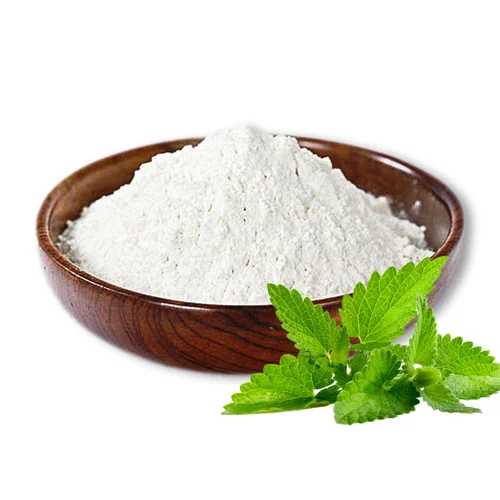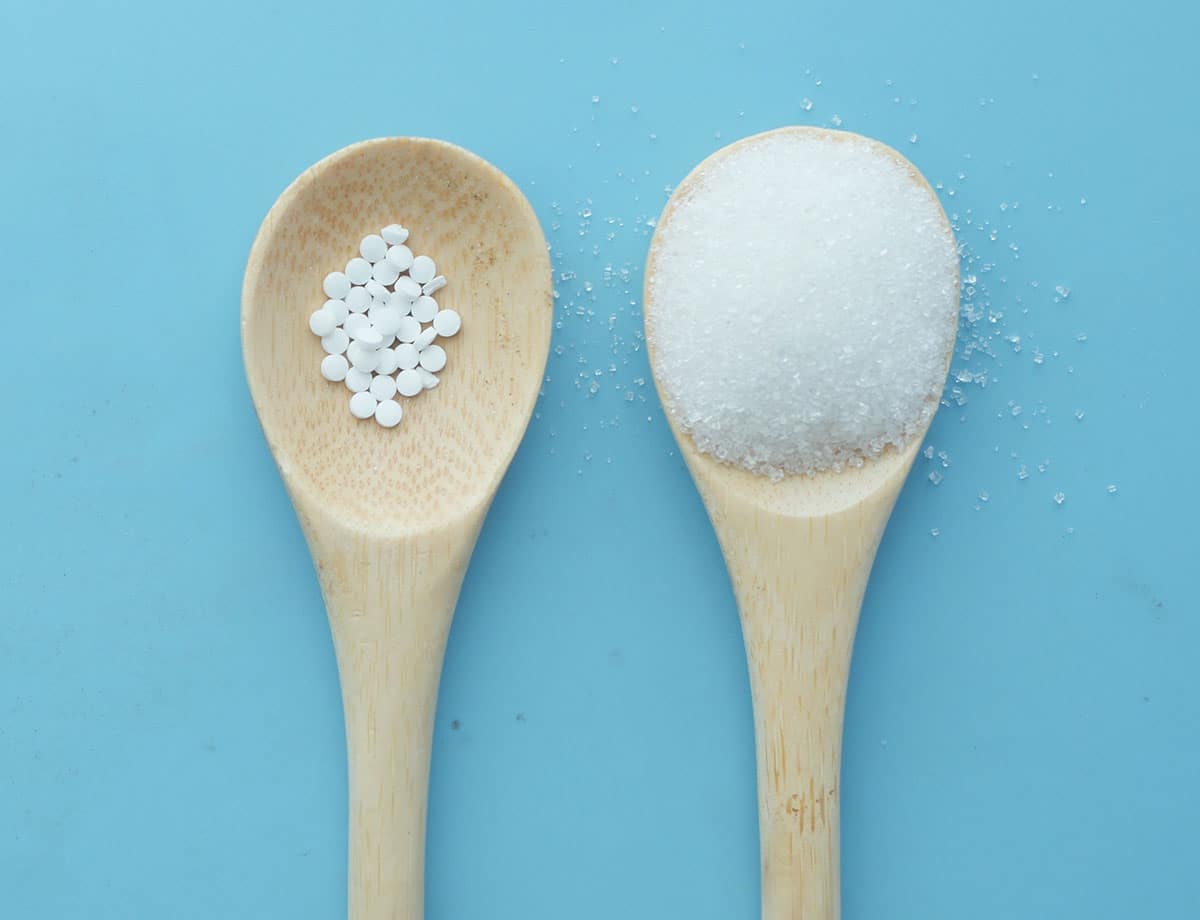Is Stevia Extract the Future of Sweeteners?
In recent years, there has been a growing interest in alternative sweeteners that offer the sweetness we crave without the negative health impacts associated with traditional sugar. Among these alternatives, stevia extract sweetener has emerged as a frontrunner, captivating health-conscious consumers and food manufacturers alike. But is stevia extract truly the future of sweeteners? Let's delve into this natural wonder and explore its potential to revolutionize our relationship with sweet tastes.

The Growing Popularity of Stevia in Healthy Diets
Stevia extract, derived from the leaves of the Stevia rebaudiana plant, has been making waves in the health and wellness community. This natural sweetener boasts zero calories and doesn't raise blood glucose levels, making it an attractive option for those looking to reduce their sugar intake without sacrificing sweetness.
The appeal of stevia lies in its versatility and potency. It's 200-350 times sweeter than sugar, meaning a little goes a long way. This concentrated sweetness allows food manufacturers to create low-calorie products that still satisfy our sweet tooth. From beverages to baked goods, stevia is finding its way into a wide array of products, catering to the growing demand for healthier alternatives.
Moreover, stevia's natural origin resonates with consumers who are increasingly wary of artificial stevia extract sweeteners. As people become more conscious about what they put into their bodies, the shift towards natural, plant-based ingredients has catapulted stevia into the spotlight.
The rise of stevia aligns with broader health trends, including the push to reduce added sugars in our diets. With health organizations worldwide recommending lower sugar consumption, stevia offers a solution that doesn't compromise on taste. This has led to its inclusion in various dietary plans, from low-carb and keto diets to diabetes management strategies.

Stevia vs. Sugar: Which Is Better for You?
When comparing stevia to traditional sugar, several key differences emerge that highlight stevia's potential as a healthier alternative:
- Caloric Content: While sugar contains 4 calories per gram, stevia is calorie-free. This makes it an excellent option for those looking to reduce their calorie intake without giving up sweet flavors.
- Glycemic Index: Unlike sugar, which can cause rapid spikes in blood glucose levels, stevia has a glycemic index of zero. This property makes it particularly beneficial for individuals with diabetes or those monitoring their blood sugar levels.
- Dental Health: Sugar is notorious for contributing to tooth decay. Stevia, on the other hand, doesn't feed the bacteria that cause cavities, potentially promoting better oral health.
- Nutrient Profile: While sugar is often referred to as "empty calories," some studies suggest that stevia may offer additional health benefits. Research has explored its potential antioxidant and anti-inflammatory properties, though more studies are needed to confirm these effects.
However, it's important to note that stevia isn't without its considerations. Some people report an aftertaste or bitterness when consuming stevia, particularly at higher concentrations. Additionally, while stevia extract sweetener is generally recognized as safe by regulatory bodies like the FDA, long-term studies on its effects are still ongoing. Another factor to consider is stevia's impact on gut health. Preliminary research suggests that stevia might have a neutral or potentially positive effect on gut bacteria, unlike some artificial sweeteners that have been associated with negative changes in gut microbiota.

How Stevia is Revolutionizing the Food and Beverage Industry?
The food and beverage industry has embraced stevia with open arms, recognizing its potential to meet consumer demands for healthier, lower-calorie options. This natural sweetener is transforming product formulations across various categories:
- Beverages: Soft drinks, flavored waters, and ready-to-drink teas have been at the forefront of stevia adoption. Major beverage companies have reformulated their products to include stevia, allowing them to reduce sugar content while maintaining sweetness. This has led to a new generation of low-calorie and zero-calorie drinks that appeal to health-conscious consumers.
- Dairy Products: Yogurts, flavored milk, and ice creams are incorporating stevia extract sweetener to create lighter versions of beloved treats. These products offer the creamy textures and indulgent flavors consumers crave, but with significantly reduced sugar and calorie content.
- Snacks and Confectionery: From chocolate bars to gummy candies, stevia is helping confectioners create guilt-free indulgences. These products cater to consumers who want to enjoy sweet treats without the associated calorie load.
- Baked Goods: While baking with stevia presents some challenges due to sugar's functional properties, innovative blends and formulations are allowing bakers to create lower-sugar breads, cakes, and cookies that still deliver on taste and texture.
- Condiments and Sauces: Stevia is finding its way into ketchups, salad dressings, and other condiments, helping to reduce sugar content in these often overlooked sources of added sugars.
The impact of stevia extends beyond just product reformulation. It's driving innovation in extraction and processing technologies, as companies seek to improve the taste profile and overcome challenges like bitterness. This has led to the development of new stevia varieties and extraction methods that produce cleaner, sweeter tastes.

Conclusion
As we look to the future of sweeteners, stevia extract stands out as a promising candidate to reshape our relationship with sweet tastes. Its natural origin, zero-calorie profile, and potential health benefits make it an attractive option for consumers and food manufacturers alike. While challenges remain, such as optimizing taste profiles and addressing formulation complexities, the ongoing research and development in this field suggest that stevia's role in our diets is likely to grow.
However, it's important to remember that no single ingredient is a magic bullet for health. Stevia should be viewed as part of a balanced approach to nutrition, alongside a diet rich in whole foods and mindful eating practices. As research continues and technology advances, we can expect to see even more innovative applications of stevia in the food and beverage industry.
Whether stevia will completely replace traditional sugar remains to be seen, but its rising popularity and versatility certainly position it as a key player in the future of sweeteners. For those interested in exploring the potential of stevia extract sweetener in product development or seeking more information about natural plant extracts, feel free to reach out to us at info@yanggebiotech.com. Our team of experts is ready to assist you in navigating the exciting world of natural sweeteners and plant-based ingredients.
References
1. Johnson, R. K., et al. (2018). "Low-calorie sweetened beverages and cardiometabolic health: a science advisory from the American Heart Association." Circulation, 138(9), e126-e140.
2. Ashwell, M. (2015). "Stevia, Nature's Zero-Calorie Sustainable Sweetener: A New Player in the Fight Against Obesity." Nutrition Today, 50(3), 129-134.
3. Geuns, J. M. (2003). "Stevioside." Phytochemistry, 64(5), 913-921.
4. Samuel, P., et al. (2018). "Stevia Leaf to Stevia Sweetener: Exploring Its Science, Benefits, and Future Potential." The Journal of Nutrition, 148(7), 1186S-1205S.
5. Urban, J. D., et al. (2015). "Steviol glycoside safety: Are highly purified steviol glycoside sweeteners food additives?" Food and Chemical Toxicology, 75, 71-78.

Based on your location and order quantity, you will have the opportunity to receive a limited time free shipping promotion!

Who we are


